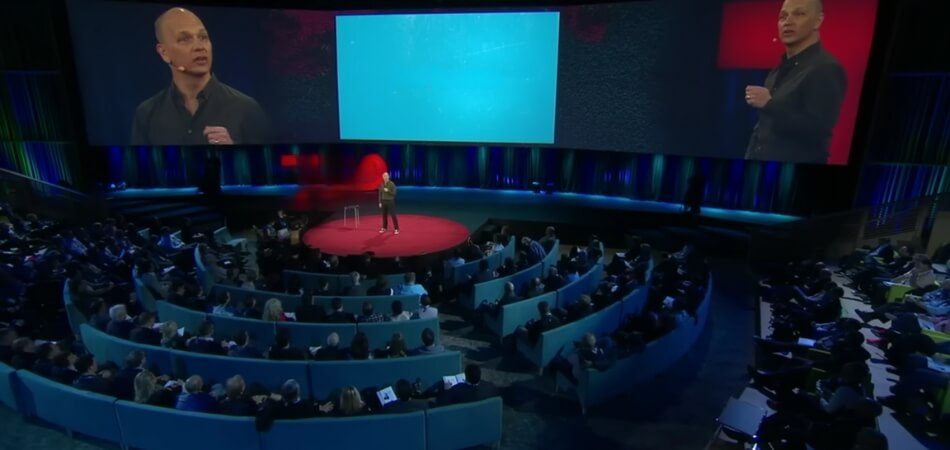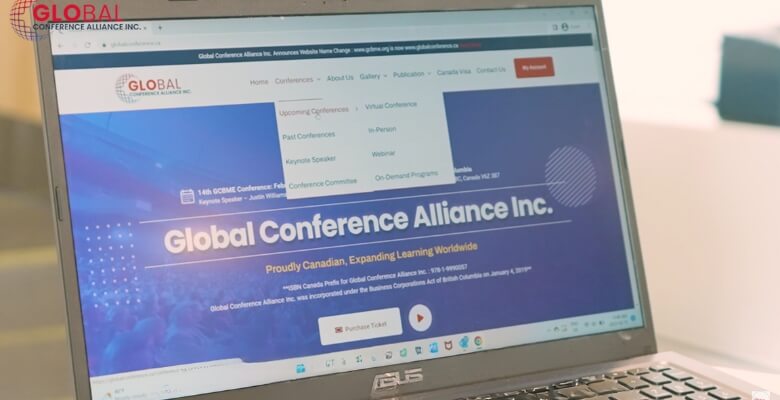The opportunities to learn, network, and grow professionally at conferences are unlike any other. It is a platform for knowledge exchange and exploration of new ideas between experts and attendees. But you might be wondering: Can a conference be for one day?
Yes, it can be possible if it is a small conference. Many conferences are designed to fit into a single day, packed with a focused schedule of sessions, workshops, and networking opportunities. In these one-day events, learning and engagement are typically maximized through intensive and well-structured sessions.
A one-day conference can deliver great value for both organizers and attendees with the right planning. Want to learn more about what makes these events special? Keep reading to discover all about one-day conferences.
What is a Conference Exactly?
A conference is a gathering of people to discuss a specific topic or a topic of interest. It usually includes presentations, workshops, and discussions led by experts. Attendees come to learn, share ideas, and network with others. Before anything, it is obligatory to know the history of the conference. Basically, the origin of conference is rooted in the Latin word ‘Conference’ meaning ‘to consult’ or ‘to bring together’. This means a conference is a gathering where individuals meet, discuss, and share thoughts and ideas.

The conference provides participants with the opportunity to hear from keynote speakers and attend sessions on a variety of topics. Conference organizers are key participants in event planning and management. They ensure everything runs smoothly. These events often feature panels, Q&A sessions, and breakout groups. Professionals can stay updated on industry trends and developments.
Participating in international conferences that allow people from all over the world to attend. They serve as important venues for knowledge exchange and collaboration. By attending, you can build connections and gain valuable insights into your field.
Can a Conference Be for One Day?
Yes, a conference can be held for one day. Many conferences are designed to fit into a single day, offering a packed schedule of events. These events are often focused and intensive, providing a wealth of information in a short time.
Planning and Organization
Effective planning is crucial for a one-day conference. When organizing a one-day conference, organizers must ensure the schedule is well-structured to cover key topics. Time management is essential to prevent sessions from running over, and careful coordination ensures smooth execution.
Session Structure
It is common for one-day conferences to have shorter sessions and more focused topics. This allows a variety of topics to be covered. The attendees benefit from short, impactful presentations. Breaks between sessions are crucial for networking and recharging.
Speaker Selection
A successful one-day conference depends on selecting the right speakers. Experts in the field can deliver high-impact presentations. The right speakers keep the audience interested and involved. A diverse lineup of speakers can offer multiple perspectives.
Networking Opportunities
Even one-day conferences require networking. During breaks, effective networking strategies can be implemented to maximize networking time. Lunches and coffee breaks are perfect for informal discussions. Planning networking sessions maximizes interaction time.
Budget Considerations
An event that lasts one day can be budgeted for more easily. Costs are lower than multi-day events. Venue rental, meals, and speaker fees are key budget items. Proper budgeting ensures conference value without overspending.
In a short time, one-day conferences offer relevant content and networking opportunities. Well-planned sessions, engaging speakers, and budget considerations can add significant value for attendees. One-day conferences can provide a wealth of benefits for both organizers and attendees.
Different Types of Conferences
Each conference refers to a different field and interest. There’s a conference for everyone, whether you’re a professional or a scholar. Here, we’ll explore different types of conferences: educational, nursing, business, the humanities, and arts conferences.
Educational Conferences
It can be regional or international educational conferences. These events cover topics related to teaching, learning, and educational policy. They bring together educators, administrators, and policymakers to share best practices, research findings, and innovative teaching methods. These events often feature workshops, keynote speeches, and panel discussions to improve educational strategies.
Nursing Conferences
A nursing conference is a specialized event for nursing professionals to discuss advances in healthcare, clinical practices, and patient care. They provide opportunities for nurses to earn continuing education credits, network with peers, and learn about the latest developments in nursing research and technology. Experts from the healthcare field often present hands-on workshops and presentations at these conferences.
Business Conferences
Various industries gather at business conferences to discuss trends, strategies, and innovations. The conference will cover topics such as marketing, leadership, finance, and entrepreneurship. As part of these events, you have the opportunity to network with industry leaders and attend workshops designed to improve your business practices.
Humanities Conferences
History, literature, philosophy, and cultural studies are among the subjects explored at humanities conferences. Scholars and researchers present their work, engage in critical discussions, and explore new perspectives on human culture and society. These events often feature paper presentations, panel discussions, and keynote addresses by prominent academics.
Arts Conferences
The visual and performing arts are discussed at arts conferences by artists, educators, and scholars. Topics may include art history, contemporary practices, arts education, and creative processes. These conferences offer a platform for showcasing artistic work, participating in workshops, and engaging in discussions about the role of the arts in society.
If you know what types of conferences you are interested in and what you need, you can choose the right one. Education, healthcare, business, humanities, or the arts can all benefit from attending the right conference. Stay updated on the latest trends and advancements in your field by participating.
Conference Categories by Duration and Schedule
Other than these, conferences can be categorized by counting duration. Conferences are available at different lengths and with different time schedules.
Single-Day Conferences
These are compact events usually lasting one full day. Ideal for focused topics, workshops, or updates on specific subjects. Basically, the concept of micro conferences comes from single-day conferencing that often includes a combination of keynote sessions, panel discussions, and networking opportunities. Industry briefings, product launches, regional seminars, etc., are examples of some single-day conferences.
Two-Day Conferences
Two-day conferences spread over two days, allowing more time for diverse sessions and networking. These are suitable for topics that require more in-depth discussion and multiple breakout sessions. Two-day conferences typically include multiple keynote speeches, several sessions or workshops, and networking events. Annual regional meetings, small-scale industry conferences, or focused workshops are some examples of these types of conferences.
Three-Day Conferences
These conferences extend over three days, providing sufficient time for a variety of sessions and activities. Three-day conferences are suitable for larger conferences with a broad agenda, including numerous keynote speeches, workshops, panel discussions, and networking opportunities. They often include pre-conference workshops, main sessions, social events, and closing sessions.
Extended Conferences
Extended conferences lasting four to five days or more, often with a highly detailed agenda. Extended conferences are ideal for large, complex events that require extensive time for deep discussions, training, or multiple tracks. Major international conventions, large-scale scientific symposia, or long-term training events are some known examples of extended conferences.
Benefits of Attending a Conference
The benefits of attending conferences are numerous for professionals in any field. Your career can be significantly impacted by these events. Let’s explore some of the key benefits you can gain from participating in conferences.
Knowledge and Skill Development
You can learn from experts by attending conferences. The presentations and workshops you attend allow you to gain new knowledge and skills. As a result, you will be able to improve your professional expertise and remain current. Your skills make you more competitive in your field when you improve them.
Exposure to Latest Trends
Taking part in a conference allows you to stay up to date with industry trends and innovations. You can learn about new tools, technologies, and methodologies. Staying updated helps you apply the latest practices in your work. This exposure is crucial for staying relevant and competitive.
Inspiration and Motivation
A successful professional conference can be a great source of inspiration. Keynote speakers and presenters often share their success stories and challenges. This can motivate you to pursue your goals with renewed energy. Inspiration from conferences can lead to personal and professional growth.
Career Development
Conferences offer numerous career development opportunities. You can learn about new job opportunities and career paths. Interacting with industry leaders can open doors for mentorship and guidance. These experiences can significantly impact your career trajectory.
Building Professional Relationships
A key benefit of attending conferences is the opportunity to build professional relationships. These relationships can lead to future collaborations and projects. Strong professional networks are crucial for career success. It is possible to develop these relationships in a unique environment at conferences.
By attending conferences, you can improve your skills and build professional relationships. You invest in your professional development by attending conferences, staying informed about industry trends, finding inspiration, and advancing your career.
Registration for Conferences: How Do I Do It?
It may seem overwhelming to register for a conference, but there are a few steps you need to follow, and the process becomes straightforward. Here are the steps you need to take to ensure a smooth registration process.
Step 1: Find Your Conference
Research online or through professional networks to identify the conference you wish to attend. Find conferences relevant to your field and interests, ideally hosted by a reputable conference organizer. Make sure to note the dates, location, and registration deadlines. This information helps you plan accordingly and ensures you don’t miss important events.
Step 2: Visit the Conference Website
For detailed information, you can visit the official website. The website will have sections on registration, schedules, and important updates. Bookmark the site for easy access and reference. This will help you stay updated with any changes and easily find necessary information.
Step 3: Review Registration Options
Check the available registration options, such as early bird, regular, or late registration. Determine which option suits your needs and budget. Each option may come with different benefits and pricing. Understanding these options can help you make an informed decision and save money.
Step 4: Gather Necessary Information
Prepare the required personal and professional information for registration. This typically includes your name, contact details, and professional affiliation. Having this information ready will streamline the registration process. Being prepared ensures a quicker and smoother registration experience.
Step 5: Choose Your Sessions
Some conferences require you to select specific sessions or workshops during registration. Sessions can be long or short depending on the type of conference you are joining. In general, one-day conferences will come up with shorter sessions, while extended conferences can hold day-long sessions and workshops. Review the conference schedule and choose the sessions you want to attend. Make sure to select those that align with your interests and goals. This will help you make the most of your conference experience.
Step 6: Complete the Registration Form
Fill out the online registration form with your accurate personal and professional information. Ensure all required fields are completed and double-check for any errors. Carefully follow any specific instructions on the form to avoid delays or issues. A complete and accurate form ensures your registration is processed smoothly.
Step 7: Make the Payment
Proceed to the payment section and choose your preferred payment method. Conferences typically accept credit cards, bank transfers, or online payment systems. Confirm the payment and keep the receipt for your records. Securing payment confirmation ensures you have proof of registration and payment.
Step 8: Receive Confirmation
Once your payment is processed, you will receive a confirmation email. This email includes your registration details and important information about the conference. Keep this email safe as it may contain your entry pass and additional instructions. Having this confirmation ensures you are officially registered and prepared.
Step 9: Prepare for the Conference
Start preparing for the conference by booking travel and accommodation, if needed. Review the conference agenda and plan your schedule. Being well-prepared ensures you make the most of the conference experience. This preparation helps you focus on learning and networking during the event.
The registration process for a conference involves several steps, from finding the right event to receiving your confirmation. By following this guide, you can find the registration process with ease. Have fun and make the most of your time at the conference!
Frequently Asked Questions
A well-chosen conference can be a great boost for your career development. To assist you, we’ve compiled answers to some of the most frequently asked questions about attending and making the most of these events.
What Should I Include in a Conference Presentation?
Your presentation should be adjusted to the interests of a specific audience. Ensure it includes a clear introduction, a concise overview of the topic, and a conclusion. Additionally, use visuals to support the main points and ensure the presentation is logically structured.
How Can I Get a Conference Speaking Opportunity?
One way to do this is to contact a conference organizer directly and pitch your topic. You can also join a professional association and submit a proposal for one of their conferences. Finally, you can create your conference and offer speaking opportunities.
What Are Some Tips for Making the Most of a Virtual Conference?
Take advantage of networking opportunities, attend all sessions, and ask questions. Take advantage of the virtual platform’s features, such as live chat, to connect with people. Finally, follow up with the contacts you made at the conference.
What Are Common Mistakes to Avoid During a Conference?
Make sure you don’t remain passive, don’t keep to yourself, and focus on networking. Don’t just talk to people in the same field as you, but also talk to people in other fields. Finally, don’t forget to take notes, as information can quickly be forgotten.
How Do I Prepare for a Poster Presentation at a Conference?
Study other posters at the conference and prepare a 30-second elevator pitch about your poster. Practice your presentation before the big day and be on time for your session. Finally, have business cards handy to hand out to interested attendees.
Bottom Line
To attend a conference, you should complete your application accurately. If you fill out your registration form incorrectly, it might affect your session choices or cause problems with your entry pass, leading to miss opportunities or complications on the day of the event.
When considering “Can a conference be for one day?”, we realize that even brief events require detailed planning and attention. If you spot an error after submitting your form, contact the conference organizers as soon as possible to make corrections.
By verifying all details correctly and addressing any issues promptly, you set yourself up for a successful conference experience. This attention to detail helps you fully benefit from the event’s opportunities for learning and networking.







